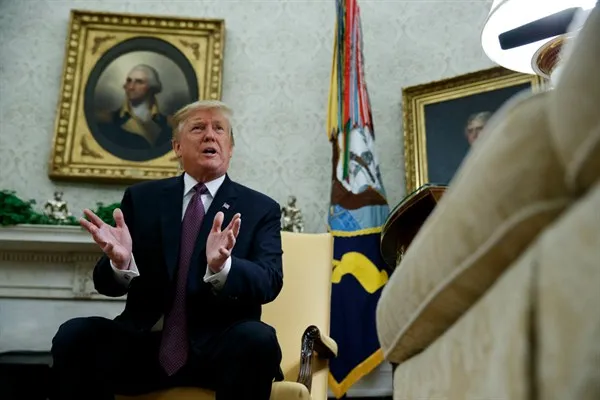Author: Richard Haass
Affiliation: The Council on Foreign Relations
Organization/Publisher: Foreign Affairs
Date/Place: November 9, 2020/ USA
Type of Literature: Journal Article
Word count: 2330
Link: https://www.foreignaffairs.com/articles/united-states/2020-11-09/repairing-world
Keywords: Biden’s Coming Administration, Disruption, Repair, Building, and The US Post-Trump Foreign Policy.
Brief:
The author provides a comprehensive perspective of how the incoming Biden administration should deal with the crowded list of domestic and international challenges that it is inheriting from the previous administration, or the ones the world has been witnessing gradually for years. He proposes a set of imperatives for a better post-Trump American foreign policy, that undertaking the responsible mission by the US first requires not only a repair of its damage but rather a repair for the whole world and making it a better place to live. The author distinguishes between two concepts, repair and building. “Repair means taking what exists but is broken and making it work; building is about creating something new, be it to better achieve existing goals or in some cases to accomplish new ones.” What the Biden administration needs to undertake immediately is repair, especially during its first months, after which the opportunity or necessity will arise for the building process. To ensure the success of this endeavor, Haass believes that the incoming administration must clearly define a list of priorities that reflect the urgent issues in which the defect must be immediately fixed. The public health sector is at the top of this list. By the inauguration day, the current pandemic is likely to kill 300,000 Americans, and will cause unemployment ranging between 6% and 7%. Therefore, the pandemic should be contained inside the homeland to ensure the rapid recovery of health and economy, restore the US’ reputation in the world, and open the way for the Biden administration to head towards addressing the other problems. As for how to do this, the author presents a set of local procedural recommendations and calls for the US to return immediately to the World Health Organization and activate it with liberal allies, after the harmful withdrawal of Trump from it, who left it at the mercy of Chinese pressure. Thus, the United States should engage in international efforts to develop, manufacture, finance, and distribute vaccines. This will ensure the US benefits from the successful vaccine as soon as it will be available, rapid recovery, saving other countries, and restoring its international reputation in the world. The second priority is to repair the alliances that Trump has harmed, as alliances are the great structural advantage of US foreign policy. Trump has undermined the alliances that have been the bedrock of international stability for 75 years, raising questions about US’ credibility among friends and foes alike. Therefore, the author calls the Biden administration to demonstrate a new, more consultative and committed approach to alliances by pursuing concrete behaviors such as the immediate halt to the imprudent withdrawal of US forces from Germany, resolve differences with South Korea over financial support for US forces stationed there, revisit the agreement signed with the Taliban, coordinate a new approach with European allies toward Iran, and emphasize multilateralism by rejoining international agreements and institutions from which Trump withdrew like the World Health Organization and the Paris Climate Agreement, etc. Moreover, the author offers recommendations on how to engage with Russia and China. The Biden administration, for example, should develop a comprehensive approach to Russia that addresses issues of its interference in American politics, the use of force in the Middle East and Europe, and domestic human rights violations. It should also extend with Moscow the New Start agreement for arms control, which will soon expire. The United States needs to formulate a similar comprehensive policy toward China that addresses everything from trade and technology to human rights to strategic concerns regarding the South China Sea, Taiwan, and China’s growing assertiveness with its neighbors. The Biden administration can take two crucial steps vis-à-vis China: First, to make clear that the new policy will be developed in close coordination with allies in Asia and Europe, in other words, it will be supported on a larger scale and thus have a high chance of success. Second, to show a willingness of holding a serious strategic dialogue with Beijing to identify areas of potential cooperation and reduce the possibility of escalation, which is inevitable, so that they do not turn into a confrontation. Finally, Haass asserts that maintaining a hierarchy of priorities (first a time for the repair, then a time for building) will help the new administration successfully manage problems and fix the world’s damages. The author also points out that there are many areas in which one can imagine repair initiatives, such as repairing the World Trade Organization, setting international basic rules for cyberspace, promoting change in Venezuela and Syria, enhancing diplomatic progress between Israel, Palestinians, and Arabs, and strengthening NATO, etc. “To realize opportunities to build, the administration will first have to complete the urgent task of repair, at home and in the rest of the world.“
By: Djallel Khechib, CIGA Senior Research Associate




